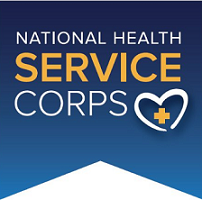Consistent, sturdy mental health takes work. It takes knowing yourself and setting aside time to consider what works and what doesn’t work for your unique needs. It also takes growth and improvement to see changes. When your mental health is in a good state, it is easier to deal with stress, relate to others in your life and think clearly to make better choices.
If you want to improve your mental health, there are small things you can do every day to get big results. Taking care of your mental health can be like managing your physical health: creating positive routines and taking preventative measures. Remember, good mental health connects physical and emotional wellbeing!
Improve Your Sleep Habits
One of the best ways to improve mental health is to improve your sleep habits. Quality, restful sleep can lead to better mental wellness. Research has found that those who get fewer than six hours of sleep per night are more likely to report mental distress.
If you’re the type who stays up late watching TV or scrolling endlessly on your phone, it’s time to make some changes. The following habits can help you get the shuteye your mind and body need.
- Avoid drinking caffeine after 3 p.m.
- Transform your room into a relaxing, quiet space that’s free of clutter
- Set a schedule for when you go to bed and get up at the same time each day
- Lower the temperature in your room to about 65 degrees
- Avoid watching TV or using your phone for at least an hour before bed
Add in Some Exercise
Moving your body offers a ton of mental health benefits, including stress relief, improved mood, better sleep and even managing depression and anxiety symptoms. There are many forms of exercise to choose from, so pick the one (or ones) that you enjoy and that you’ll continue to do. Your workouts do not have to be vigorous to get mental health benefits. Any of the following exercise options are good for your mind and body.
- Walking or running
- Dancing
- Yoga
- Hiking
- Stretching
Spend Time Outside
If you’re cooped up inside all day, you can start to feel a little stir crazy. Not to mention that a lack of vitamin D can negatively impact your mood. If you’re looking for mental health improvements, you’ll find it outside. Even just a few minutes in the sunshine can make a big difference.
Here are a few ways to enjoy the great outdoors without having to think too hard about it:
- Take a walk
- Sit in your yard
- Eat your lunch at the park
- Take your workout outside
- Schedule an outdoor meeting
- Step out for a quick breath of fresh air
Reduce Your Time on Social Media
Social media is a great way to keep in touch with friends and family that you don’t see often, but it can also be a source of mental distress, including low self-esteem, comparison and jealousy. If you find that consuming a lot of social media is making you feel bad about yourself, it’s time to cut back. Put your phone somewhere that’s not easily accessible for a period of time during the day or delete the apps that you find yourself checking all day long.
Bond With Your Pets
Did you know that spending time with animals can improve your mental health? It’s true. If you have a pet, set aside time each day for some bonding. That may be cuddling on your bed, going for a walk together or a simple petting session where you and your pet can connect. You may be surprised at how much your mood improves just by spending time with your dog or cat.
Aim for Nutrient-Rich Meals
Eating food that is nutrient rich can help improve your mood and boost your mental health. Certain foods have the fuel necessary to help you feel better, giving you energy and nutrients that your body needs. While you don’t have to cut out everything that you enjoy eating, try adding in foods that are proven to help your mental health, including:
- Fruits and vegetables
- Whole grains
- Beans and other legumes
- Fatty fish, such as salmon
- Lean meats
Incorporating these foods into your diet, along with plenty of water, can help your body and your mind feel better.
Set Aside Time for Rest
If you’re going, going, going all day long, you may soon find yourself burned out. Regular rest is necessary for good mental health. This doesn’t mean you have to take a nap every day or spend an hour meditating. It just means that you should set aside some time each day to slow down, be present and let your mind rest from your daily tasks. What rest looks like for you may not be the same for someone else. You may enjoy deep breathing techniques while someone else prefers sitting quietly outside. Find the rest that feels best for you!
Show Your Gratitude
Thinking about the positive things in your life can improve your mental health. Gratitude is a proven way to boost your mood and decrease your stress. It’s easy to get caught up in a spiral of negative thinking, filling your mind with negative emotions. Instead, focus on showing gratitude for what you have which can put your mind in a positive space. Not sure how to start expressing gratitude? A gratitude journal where you write small things you’re grateful for each day is a good first step.
Go to Therapy
If you haven’t tried it already, adding therapy into your life can make a big impact on your mental wellbeing. You don’t have to be experiencing intense mental health symptoms to benefit from therapy. Simply speaking to someone about the stressors in your life can help. Think of therapy as a type of checkup for your mental health. You visit the doctor to keep your body healthy and visiting a therapist can do the same for your mind.
Want to learn more ways to improve mental health? Contact Bear River Mental Health to find out about the services we offer to clients in Box Elder, Cache and Rich counties. We’re here for you.
Q&A for "Nine Ways To Improve Your Mental Health"
I struggle with sleep, but finding time to exercise feels impossible. What should I prioritize?
Both sleep and exercise are crucial for mental health, but prioritize getting enough sleep first. Aim for 7-8 hours each night. Improved sleep can boost energy levels, making exercise more manageable. Start with small, achievable goals like a 15-minute walk and gradually increase as your energy improves.
I don't have a pet, but spending time outdoors boosts my mood. Are there other ways to connect with nature?
Absolutely! Gardening, volunteering at local parks, or even sitting in a quiet green space can offer similar benefits. Explore nature walks, hikes, or joining outdoor social groups for deeper connection.
What specific foods are best for improving mental health? Are there any to avoid?
Focus on incorporating rich nutrient sources like fruits, vegetables, whole grains, and lean protein. Limit processed foods, excessive sugar, and unhealthy fats, which can worsen mood and energy levels. Consult a nutritionist for personalized dietary advice.
I don't know where to start with therapy. What should I look for in a therapist and how often should I go?
Research online platforms or ask your doctor for therapist recommendations. Consider factors like specialization, experience with your concerns, and insurance coverage. Therapy frequency depends on individual needs, but weekly sessions are common initially, with adjustments as progress is made.
I worry about the stigma of therapy. Is it really worth it?
Absolutely! Therapy is valuable for everyone seeking personal growth and improved mental well-being. Don’t let stigma prevent you from taking care of yourself. The benefits far outweigh any negative perceptions. Remember, prioritizing your mental health is a sign of strength, not weakness.
How can I support a friend or family member struggling with their mental health?
Be a good listener, offer empathetic support, encourage professional help, and avoid judgment. Research resources like mental health hotlines or support groups, and be mindful of setting healthy boundaries while offering compassion.


